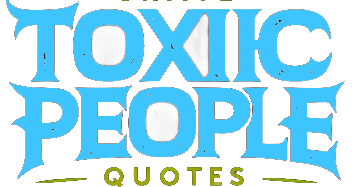The financial world was recently rocked by the Dineromia leak, an event that has sent shockwaves throughout the industry. This leak has raised concerns about privacy, security, and accountability in the realm of personal and financial data. In this article, we will delve into what the Dineromia leak is, its implications, and what you need to know to protect yourself in the wake of this event.
The Dineromia Leak: What Happened?
The Dineromia leak refers to the unauthorized disclosure of sensitive financial data belonging to millions of users of the popular financial management app, Dineromia. It is alleged that a group of hackers gained access to the app’s database and stole a vast amount of personal information, including bank account details, social security numbers, credit card information, and more.
Implications of the Dineromia Leak
The repercussions of the Dineromia leak are far-reaching and could have a significant impact on affected individuals. Some of the potential implications include:
1. Identity Theft
With access to personal identification information, hackers can use this data for nefarious purposes, such as identity theft. Victims of identity theft may suffer financial losses, damage to their credit score, and face difficulties in resolving issues related to fraudulent activities.
2. Financial Loss
The compromise of bank account details and credit card information can lead to financial losses for individuals whose data has been exposed. Unauthorized transactions, fraudulent withdrawals, and other forms of financial exploitation are real risks in the aftermath of such a breach.
3. Privacy Violations
The leaking of sensitive personal information can result in privacy violations and have a profound impact on individuals’ sense of security and confidentiality. The loss of privacy can have long-term consequences for those affected by the breach.
Protecting Yourself Post-Dineromia Leak
In the wake of the Dineromia leak, it is crucial to take proactive steps to protect yourself and mitigate any potential risks associated with the exposure of your personal financial data. Here are some important measures you can take:
1. Monitor Your Accounts
Regularly review your bank statements, credit card transactions, and other financial accounts for any unauthorized activities. Report any suspicious or unfamiliar transactions to your financial institutions promptly.
2. Change Your Passwords
If you have used the same password for multiple accounts, it is advisable to change your passwords immediately. Opt for strong, unique passwords for each of your accounts to enhance security.
3. Enable Two-Factor Authentication
Two-factor authentication provides an additional layer of security for your accounts. Enabling this feature can help prevent unauthorized access even if your password is compromised.
4. Be Cautious of Phishing Attempts
Stay vigilant against phishing attempts, where attackers try to trick you into revealing sensitive information. Avoid clicking on suspicious links or providing personal information via email or text messages.
5. Consider Freezing Your Credit
To prevent unauthorized individuals from opening new accounts in your name, you may consider freezing your credit with the major credit bureaus. This can help prevent fraudulent activities using your identity.
Frequently Asked Questions (FAQs)
1. How Did the Dineromia Leak Happen?
The exact details of how the Dineromia leak occurred are still under investigation. However, it is suspected that hackers exploited vulnerabilities in the app’s security infrastructure to gain unauthorized access to the database.
2. What Information Was Compromised in the Dineromia Leak?
Sensitive personal information such as bank account details, social security numbers, credit card information, and other financial data were reportedly compromised in the Dineromia leak.
3. What Should I Do If I Was Affected by the Dineromia Leak?
If you suspect that your data was exposed in the Dineromia leak, it is advisable to monitor your accounts for any unusual activities, change your passwords, and consider alerting the relevant financial institutions.
4. Can I Sue Dineromia for the Data Breach?
Depending on the circumstances of the Dineromia leak and relevant laws in your jurisdiction, you may have legal recourse to pursue a lawsuit against Dineromia for negligence in safeguarding your personal information.
5. How Can I Better Protect My Financial Data in the Future?
To enhance the security of your financial data, practice good cybersecurity hygiene such as using strong, unique passwords, enabling two-factor authentication, and staying informed about potential security threats.
In conclusion, the Dineromia leak serves as a stark reminder of the importance of safeguarding personal financial information in a digital age fraught with cybersecurity risks. By staying vigilant, adopting best practices for data protection, and promptly addressing any security incidents, individuals can better shield themselves from the adverse effects of data breaches like the one experienced by Dineromia users.

